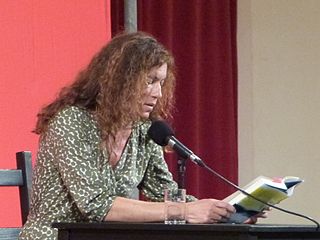 W
WPauline Elisabeth Ottilie Luise of Wied was the Queen of Romania as the wife of King Carol I, widely known by her literary name of Carmen Sylva.
 W
WJohann Heinrich Samuel Formey was a German churchman, educator, author, and journalist. The son of an immigrant French family, he preached, taught, and wrote in French. A founding member of the Berlin Academy, he wrote thousands of letters, popularized scientific and philosophical ideas, and also contributed to Diderot's Encyclopédie.
 W
WGeorg K. Glaser was a German language and Francophone writer. He was born in Germany, but by the time he died he had acquired French citizenship through marriage, and he lived in France for most of his life.
 W
WYvan Goll was a French-German poet who was bilingual and wrote in both French and German. He had close ties to both German expressionism and to French surrealism.
 W
WFriedrich Melchior, Baron von Grimm was a German-born French-language journalist, art critic, diplomat and contributor to the Encyclopédie ou Dictionnaire raisonné des sciences, des arts et des métiers. In 1765 Grimm wrote Poème lyrique, an influential article for the Encyclopédie on lyric and opera librettos. Like Christoph Willibald Gluck and Ranieri de' Calzabigi, Grimm became interested in opera reform. According to Martin Fontius, a German literary theorist, "sooner or later a book entitled The Aesthetic Ideas of Grimm will have to be written."
 W
WChristian Johann Heinrich Heine was a German poet, writer and literary critic. He is best known outside Germany for his early lyric poetry, which was set to music in the form of lieder by composers such as Robert Schumann and Franz Schubert. Heine's later verse and prose are distinguished by their satirical wit and irony. He is considered part of the Young Germany movement. His radical political views led to many of his works being banned by German authorities—which, however, only added to his fame. He spent the last 25 years of his life as an expatriate in Paris.
 W
WJean Chrétien Ferdinand Hoefer was a German-French physician and lexicographer. He is now known for his many works on the history of science.
 W
WCharles-Étienne Jordan was a Prussian-born Huguenot refugee, advisor to Frederick the Great and French-language author on literature and history. He is mainly remembered for his Histoire d'un voyage litteraire (1735) describing his literary visits in France, England and the Netherlands.
 W
WGottfried Wilhelm (von) Leibniz was a prominent German polymath and one of the most important logicians, mathematicians and natural philosophers of the Enlightenment. As a representative of the seventeenth-century tradition of rationalism, Leibniz developed, as his most prominent accomplishment, the ideas of differential and integral calculus, independently of Isaac Newton's contemporaneous developments. Mathematical works have consistently favored Leibniz's notation as the conventional expression of calculus. It was only in the 20th century that Leibniz's law of continuity and transcendental law of homogeneity found mathematical implementation. He became one of the most prolific inventors in the field of mechanical calculators. While working on adding automatic multiplication and division to Pascal's calculator, he was the first to describe a pinwheel calculator in 1685 and invented the Leibniz wheel, used in the arithmometer, the first mass-produced mechanical calculator. He also refined the binary number system, which is the foundation of nearly all digital computers, including the Von Neumann machine, which is the standard design paradigm, or "computer architecture", followed from the second half of the 20th century, and into the 21st.
 W
WOskar Pastior was a Romanian-born German poet and translator. He was the only German member of Oulipo.
 W
WAlbert Schweitzer was an Alsatian polymath. He was a theologian, organist, writer, humanitarian, philosopher, and physician. A Lutheran, Schweitzer challenged both the secular view of Jesus as depicted by the historical-critical method current at this time, as well as the traditional Christian view. His contributions to the interpretation of Pauline Christianity concern the role of Paul's mysticism of "being in Christ" as primary and the doctrine of Justification by Faith as secondary.
 W
WAnne Weber is a German-French author, translator and self-translator. Since 1983 Anne Weber has lived in Paris. She studied in Paris and worked for several editors. Anne Weber started writing and publishing in French, but immediately translated her first book Ida invente la poudre into German Ida erfindet das Schießpulver. Since then she writes each of her books in French and German. Her self-translations are often published at the same time in France and Germany. In 2005 she received the 3Sat award at the Festival of German-Language Literature. For her translation of Pierre Michon she received a European translation award, the Europäischer Übersetzerpreis Offenburg. She was awarded the 2020 German Book Prize.